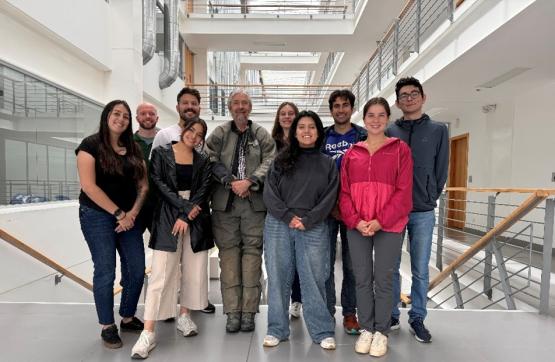

By Ariel Cevallos
The Infectious and Tropical Disease Institute (ITDI) Summer Training on Applied Research and Service-Learning (STARS) 2024 was held in July and August. The program focused on service learning and cultural immersion for 20 students from Ohio University and the Pontifical Catholic University of Ecuador (PUCE).
The program began with a visit to the Research Center for Health in Latin America (Ciseal), a longtime partner of ITDI in combating Chagas disease. Nestled among the Andean mountains in Nayón, known as the 'Garden of Quito,' Ciseal serves as a hub for scientific collaboration on infectious diseases such as Chagas, malaria, dengue, Zika and chronic diseases like diabetes. Students received an introduction to the program, exploring the social, economic, biological, and environmental determinants of health for the rural populations we would engage with.
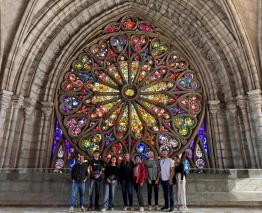
The students also experienced Quito’s rich gastronomic and cultural offerings. They sampled Manabí cuisine, renowned for its vibrant flavors from the sea, green plantains, peanuts and chili peppers, and visited a fine aroma cacao chocolate shop, which uses a fair-trade model to create chocolates infused with Ecuadorian fruits and spices. A walking tour of Quito's UNESCO-listed historic center took them from the dizzying towers of the Basilica del Voto Nacional to the intricate Baroque details of Saint Francis Square and La Ronda, one of the oldest streets in the city, where they witnessed the energy and vibrancy of the historic district.
The visit to the Guápulo viewpoint offered a stunning panoramic view of the valleys surrounding Quito. At the Ethnohistorical Handicraft Museum, the students learned about Ecuador’s diverse cultural heritage, including its indigenous, Afro-Ecuadorian, Montubio and Mestizo communities, and even created music with pre-Hispanic instruments.
In Cariamanga, Loja, the students were greeted by a contrasting landscape of towering mountains and arid heat. Each day began with the traditional battle cry: "Con nuestra labor, salud para el Ecuador!" ("With our work, health for Ecuador!"). This ritual provided a moment to discuss project updates, address challenges and foster group cohesion.
Traditional Lojano breakfasts—humitas, tamales, quimbolitos and Lojano chili sauce—were a daily highlight. In Loja, students also participated in ITDI’s sexual and reproductive health initiative, using the Rurankapak methodology developed by UNFPA in collaboration with Kichwa youth organizations to address adolescent pregnancy prevention through a participatory approach.
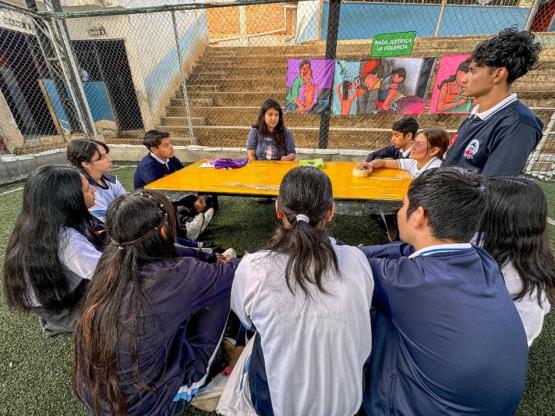
Students contributed to the Healthy Living Initiative, working alongside community members and the Ecuadorian Ministry of Housing to build anti-Chagas houses. These homes are specially designed to prevent Chagas transmission. Students painted the interiors and exteriors of the houses in the communities of Bella María, Guara and Chaquizhca, preparing them for handover to local families.
The group also took part in creating a documentary exploring social transformation in the communities ITDI has worked with. On their final day in Loja, students visited the hospital and health center in Cariamanga to gain insights into Ecuador's public health system and its capacity to treat a range of diseases.
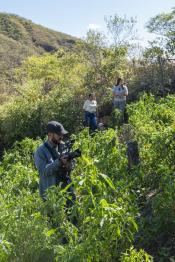
The program’s final leg in Otavalo provided further cultural immersion, with visits to the Cuicocha Lagoon, Peguche Waterfall and the bustling Plaza de los Ponchos, where they learned about local tourism, weaving and craftsmanship.
The second half of STARS 2024 was spent in Appalachian Ohio, where environmental conservation, public health, community development and cultural exchange took center stage. A full day in Wayne National Forest introduced students to fire management techniques and the role of outdoor recreation in local economies. In addition to environmental issues, the students delved into community-driven development strategies with organizations like the Corporation for Ohio Appalachian Development. They learned how local efforts focus on addressing economic challenges and improving the quality of life for underserved populations. Discussions with the Athens County Foundation further expanded their understanding of grassroots philanthropy and its role in regional development.
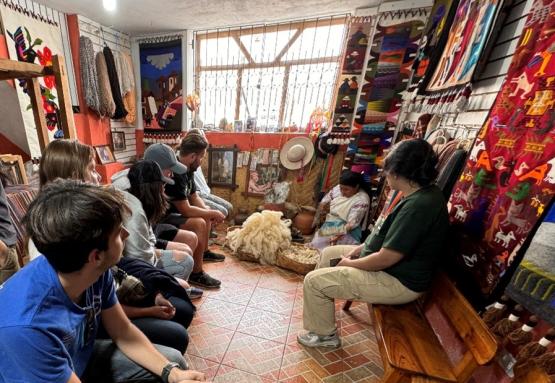
Healthcare was a critical area of learning. The students toured the Heritage College of Osteopathic Medicine and met with public health officials at the Athens City-County Health Department. They explored the intersection of health and community through mobile health units operated by OHIO's Community Health Programs, learning how these services bridge gaps in rural health care access. Sessions at the Southeast Ohio Foodbank further deepened their understanding of public health challenges in the region, particularly in addressing hunger and nutritional needs.
Cultural exchange played a vital role in the program, providing the Ecuadorian students with a comprehensive view of life in Appalachian Ohio. They explored local art initiatives at Passion Works Studio, which focuses on inclusive community art, and enjoyed a behind-the-scenes look at Jackie O’s Brewery, an employee-owned enterprise that plays a central role in Athens' craft beer scene. The group also engaged with local food systems by visiting the Athens Farmers Market and learning about the importance of sustainable, community-based agriculture.
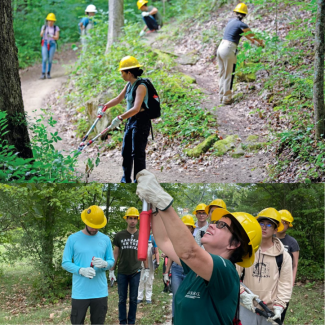
The STARS program created numerous opportunities for interdisciplinary learning. At Ohio University’s Voinovich School of Leadership and Public Service, the students explored OHIO's environmental and public policy programs, discovering how academic research translates into actionable solutions for sustainability challenges. The visit to the university’s Women’s, Gender, and Sexuality Studies program gave the group insights into how gender and social justice issues are integrated into academic discourse and community action.
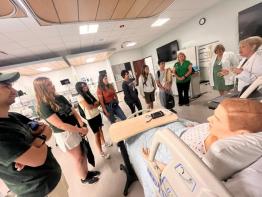
STARS 2024 fostered a rich cross-cultural exchange between Ohio and Ecuadorian students. Ohio students in Ecuador immersed themselves in the country’s diverse landscapes, engaging in service-learning projects like building anti-Chagas homes and supporting sexual and reproductive health initiatives. Meanwhile, Ecuadorian students in Appalachian Ohio explored local culture, environmental conservation and public health efforts. Both groups gained valuable insights into global health and sustainability, strengthening ties between the two regions. Through shared experiences, students from both countries developed the skills and understanding needed to address global challenges together.
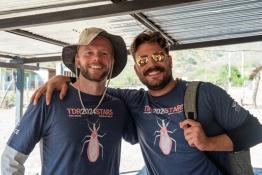
The STARS program continues to be a vital platform for connecting students from different parts of the world, encouraging them to engage deeply with global issues while fostering a spirit of cooperation and service learning.

